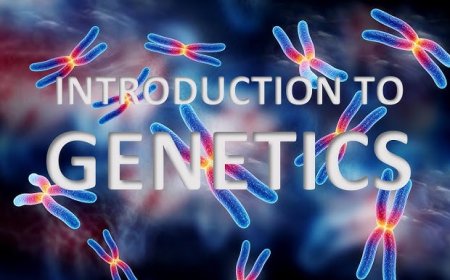The Human Immune System How It Protects Us
The human immune system is a complex network of cells, tissues, and organs that defends against pathogens. Learn about its components, functions, immune disorders, and the latest advancements in immunotherapy."

Introduction
The human immune system is a highly intricate network of cells, tissues, and organs that plays a critical role in defending the body against a wide range of pathogens, including bacteria, viruses, fungi, and even cancer cells. Its notable importance lies in its ability to maintain homeostasis and protect overall health by recognizing and eliminating harmful invaders. Understanding the mechanisms and components of the immune system is essential, as it lays the foundation for advancements in medical treatments and vaccines, which can significantly improve public health outcomes.
Branches of the Immune System
The immune system is primarily composed of two branches: innate immunity and adaptive immunity.
Innate Immunity
Innate immunity serves as the body's first line of defense, providing immediate and nonspecific responses to pathogens.
Adaptive Immunity
Adaptive immunity is characterized by a slower, more tailored response that involves the activation of specific immune cells such as T cells and B cells. This dual system allows for a comprehensive approach to identifying and combating infections, enabling the formation of immunological memory that enhances future responses to previously encountered pathogens.
Disorders of the Immune System
The immune system is susceptible to various disorders, including autoimmune diseases, allergies, and immunodeficiencies.
Autoimmune Diseases
Autoimmune diseases occur when the immune system mistakenly targets the body's own tissues.
Allergies
Allergies represent exaggerated responses to harmless substances.
Immunodeficiencies
Immunodeficiencies, whether primary (genetic) or secondary (acquired), result in reduced immune function, increasing vulnerability to infections. These disorders highlight the delicate balance the immune system must maintain and the complexities involved in its functioning.
Advances in Immunotherapy
Current research is focused on innovative therapeutic approaches, particularly immunotherapy, which harnesses the immune system to treat diseases, including cancer and infectious diseases. Recent advancements have demonstrated the potential of various immunotherapeutic strategies, such as CAR T-cell therapy and monoclonal antibodies, in improving patient outcomes. The exploration of these novel treatments is crucial as the global health landscape continues to evolve, necessitating effective responses to emerging health threats and the rising challenge of antibiotic resistance.
Components of the Immune System
The immune system consists of various organs, tissues, and immune cells that work together to protect the body.
The Immune System in different body organisms
Organs and Tissues
-
Bone Marrow: Primary site for white blood cell production.
-
Thymus: Maturation site for T lymphocytes.
-
Spleen: Filters blood and initiates immune responses.
-
Lymphatic System: Transports immune cells and facilitates immune responses.
-
Skin and Mucous Membranes: Serve as physical barriers against pathogens.
Types of Immune Cells
T Cells
-
Helper T Cells: Activate other immune cells.
-
Cytotoxic T Cells: Kill infected or cancerous cells.
-
Regulatory T Cells: Suppress excessive immune responses.
B Cells
B cells produce antibodies that bind to antigens and neutralize pathogens.
Immune Response Mechanisms
Innate Immunity
This is the body's immediate, nonspecific response to invaders, utilizing barriers, immune cells like neutrophils, and other non-specific defenses to combat pathogens.
Adaptive Immunity
This system takes longer to develop and is highly specific. It involves the recognition of specific pathogens and the generation of immunologic memory for a rapid and effective response upon subsequent exposures.
The Role of Vaccination
Vaccination introduces weakened or inactivated pathogens to stimulate the immune system to produce memory cells, preparing the body for future encounters with the actual pathogen.
Impacts of Immunodeficiency
In individuals with immunodeficiency, the immune response can be significantly compromised, increasing susceptibility to infections. Understanding immunodeficiency mechanisms is crucial for developing treatments.
Factors Affecting Immune Function
Genetic Factors
Certain genetic mutations can lead to immunodeficiency disorders, impairing immune responses.
Environmental Factors
Pollutants and pathogens influence immune function by challenging the body's defenses.
Nutritional Status
A well-balanced diet supports immune function, while obesity can lead to chronic inflammation and immunosuppression.
Stress and Psychological Factors
Chronic stress elevates cortisol levels, suppressing immune responses and increasing susceptibility to infections.
Common Immune Disorders
Autoimmune Diseases
There are over 100 known autoimmune diseases, including lupus, rheumatoid arthritis, Type 1 diabetes, and multiple sclerosis. Symptoms often include fatigue, fever, and inflammation.
Allergies
Allergic reactions occur when the immune system overreacts to harmless antigens, such as pollen or certain foods, leading to conditions like hay fever, asthma, and food allergies.
Immunodeficiencies
Immunodeficiency disorders, whether genetic (e.g., SCID) or acquired (e.g., HIV/AIDS), impair the immune system, leading to recurrent and severe infections.
Current Research and Developments
Advancements in Immunotherapy
The rise of multidrug-resistant bacteria has intensified the urgency for new antimicrobials and alternative treatments like phage therapies and vaccines. Immunotherapy has become a critical area of research.
Innovative Approaches
-
CAR T-cell therapy
-
Monoclonal antibodies
-
Cytokine-based treatments
Addressing Infectious Diseases
Immunotherapy is being explored as a solution for emerging and re-emerging infectious diseases, with a focus on developing vaccines and targeted treatments.
Conclusion
As the understanding of the immune system deepens, advancements in immunotherapy and disease prevention continue to reshape global health strategies. Further research into immune function, genetic influences, and therapeutic approaches will play a crucial role in improving disease management and overall human health.









































